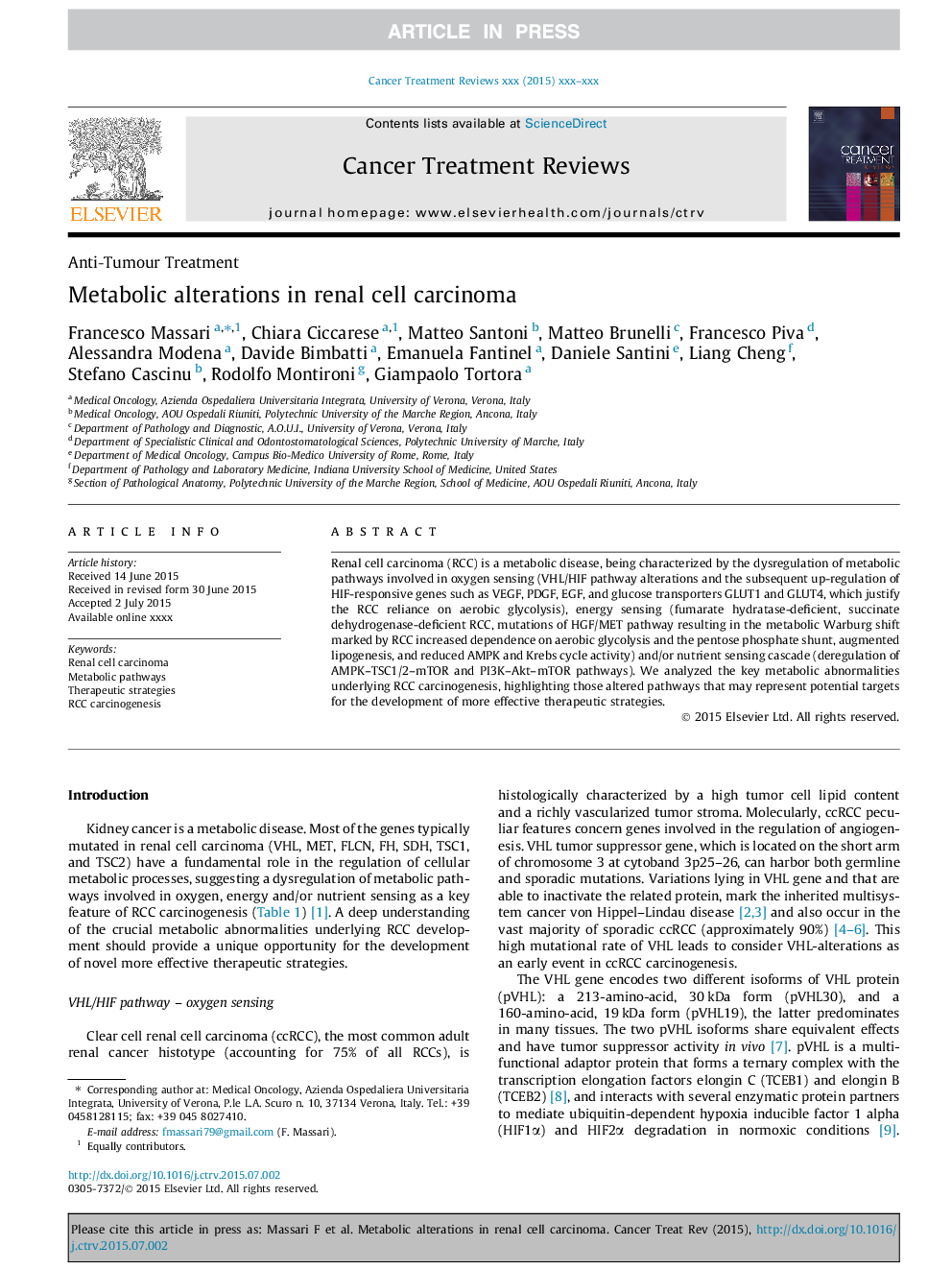| Article ID | Journal | Published Year | Pages | File Type |
|---|---|---|---|---|
| 6190468 | Cancer Treatment Reviews | 2015 | 10 Pages |
Abstract
Renal cell carcinoma (RCC) is a metabolic disease, being characterized by the dysregulation of metabolic pathways involved in oxygen sensing (VHL/HIF pathway alterations and the subsequent up-regulation of HIF-responsive genes such as VEGF, PDGF, EGF, and glucose transporters GLUT1 and GLUT4, which justify the RCC reliance on aerobic glycolysis), energy sensing (fumarate hydratase-deficient, succinate dehydrogenase-deficient RCC, mutations of HGF/MET pathway resulting in the metabolic Warburg shift marked by RCC increased dependence on aerobic glycolysis and the pentose phosphate shunt, augmented lipogenesis, and reduced AMPK and Krebs cycle activity) and/or nutrient sensing cascade (deregulation of AMPK-TSC1/2-mTOR and PI3K-Akt-mTOR pathways). We analyzed the key metabolic abnormalities underlying RCC carcinogenesis, highlighting those altered pathways that may represent potential targets for the development of more effective therapeutic strategies.
Related Topics
Health Sciences
Medicine and Dentistry
Oncology
Authors
Francesco Massari, Chiara Ciccarese, Matteo Santoni, Matteo Brunelli, Francesco Piva, Alessandra Modena, Davide Bimbatti, Emanuela Fantinel, Daniele Santini, Liang Cheng, Stefano Cascinu, Rodolfo Montironi, Giampaolo Tortora,
